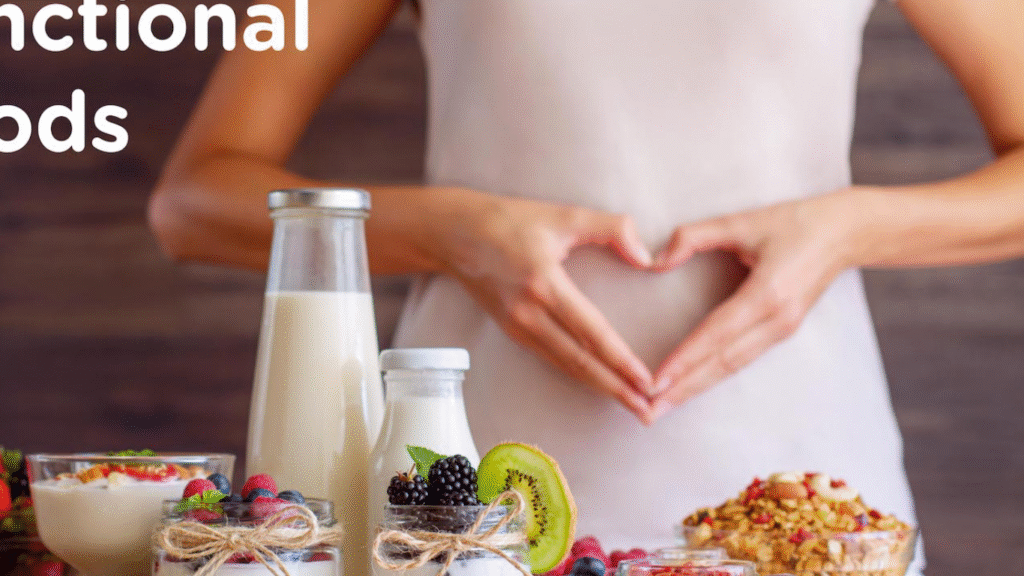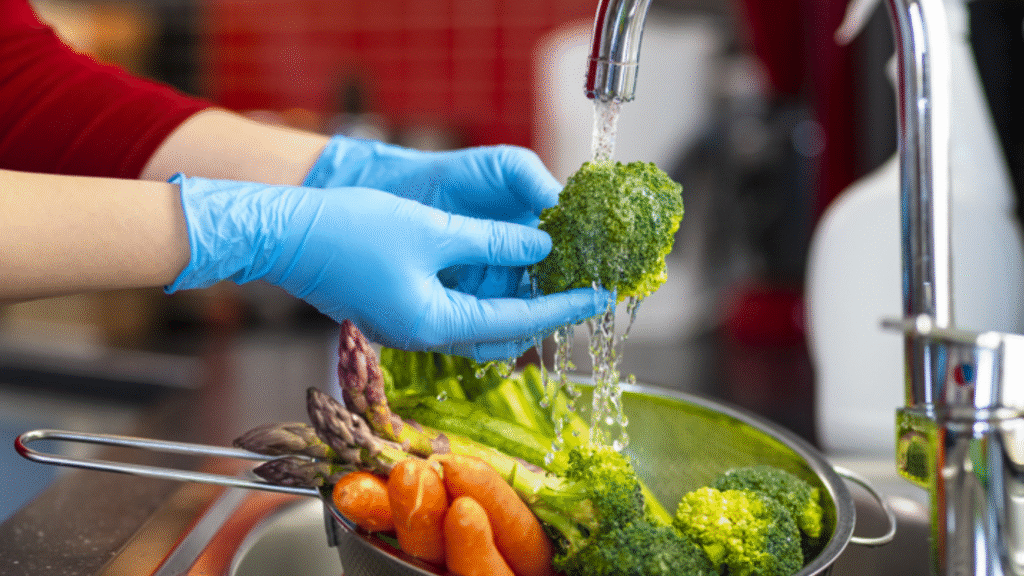At its core, clean eating means consuming foods that are as natural as possible. It’s about nourishing the body with wholesome, minimally processed foods and avoiding additives, preservatives, and artificial ingredients. The clean eating movement doesn’t necessarily prescribe strict rules; Instead, it offers guidelines that promote balance and mindfulness:
- Whole foods: Vegetables, fruits, whole grains, legumes, lean proteins, nuts, and seeds.
- Minimally processed foods: Foods that haven’t been stripped of their nutrients through excessive processing.
- Low sugar and salt: Especially refined sugar and overly salty convenience foods.
- Hydration: Drink plenty of water and limit sugary drinks.
- Mindful eating: Pay attention to hunger cues and eat mindfully.
Clean eating isn’t about deprivation or perfection it’s about choosing foods that fuel your body and mind in the healthiest way possible.
The Health Benefits of Clean Eating
More Energy:
One of the first things people notice when they start eating healthy is a boost in energy. Processed foods often contain refined sugar and unhealthy fats, which can lead to energy slumps. In contrast, healthy foods like complex carbohydrates (brown rice, quinoa, sweet potatoes) and lean proteins (chicken, tofu, beans) provide a steady energy supply throughout the day.
Better Digestion:
Healthy foods are rich in fiber, which plays an important role in healthy digestion. Fruits, vegetables, legumes, and whole grains keep digestion moving, prevent constipation, and support a healthy gut microbiome.
Weight Control:
Because clean eating avoids empty calories and promotes nutrient-dense foods, it naturally supports healthy weight loss or maintenance. It’s not about counting calories, but rather choosing foods that satisfy hunger, boost metabolism, and suppress cravings.
Stronger Immune System:
A clean eating diet is rich in antioxidants, vitamins, and minerals that boost the immune system. Vitamin C from citrus fruits, zinc from seeds, and beta carotene from carrots are just a few examples of nutrients that strengthen your body’s defenses.
Improved Mental Clarity:
The gut and brain are closely connected. A healthy diet that supports gut health also promotes mental clarity and focus. Omega-3 fatty acids from foods like salmon and flaxseed can improve brain function, while reducing sugar and processed foods can stabilize mood and reduce anxiety.
How to Start Clean Eating
Making the transition to a clean eating lifestyle doesn’t have to be overwhelming. Start small, make lasting changes, and develop healthy habits over time. Here are a few practical steps:
Read Food Labels:
One of the easiest ways to make your diet healthier is to check the labels. If a food contains ingredients you can’t pronounce or wouldn’t find in your own kitchen, it’s probably not healthy.
Cook More at Home:
Homecooked meals give you control over what goes into your food. You can choose wholesome ingredients, reduce salt and sugar, and avoid preservatives. Even simple dishes like grilled chicken with roasted vegetables and brown rice can be delicious and nutritious.
Shop Outside:
In most grocery stores, the outside aisles are filled with fresh fruits and vegetables, meat, dairy, and whole grains. The inside aisles are mostly filled with processed snacks, canned goods, and sugary cereal.
Plan and prepare meals:
Meal prep helps avoid impulsive decisions and makes healthy eating easier. Make quinoa, roast vegetables, or prepare healthy snacks for the week ahead.
Moderation over perfection:
Clean eating isn’t about being 100% perfect. It’s about making better choices every time. If you enjoy dessert or treat yourself to takeout every now and then, that’s okay. The goal is sustainable and enjoyable eating.
A Sample Clean Eating Day
To better understand how clean eating can be put into practice, here’s a sample day of meals:
Breakfast:
Avocado toast on whole grain bread with a poached egg
- With spinach and chili flakes
- Served with fresh berries
Snack:
Greek yogurt with almonds and a drizzle of honey
- Full of protein and healthy fats
- Optional: Add a few banana slices or chia seeds
Lunch:
Grilled chicken salad with quinoa
- Mixed greens, cherry tomatoes, cucumbers, olives, and a lemon olive oil dressing
- A satisfying blend of protein, fiber, and vitamins
Snack:
- Apple slices with natural peanut butter
- Whole fruit + healthy fat = energy boost
Dinner:
Baked salmon with steamed broccoli and Sweet Potato Puree
- Omega 3 Rich Fish with Fiber Rich Vegetables
- Light Yet Filling
Hydration:
Plenty of water throughout the day and perhaps a cup of green or herbal tea.
Synergy of Healthy Diet and Lifestyle

A healthy diet is often a catalyst for other positive lifestyle changes. When you start fueling your body with the right foods, you’ll naturally become more aware of how you treat it in other ways. You might start:
- Exercising regularly because you’ll have more energy.
- Sleeping better because your body isn’t battling processed junk.
- Reducing stress through better nutrition and adequate hydration.
- Feeling more confident in your body and your choices.
This synergy of nutrition, physical activity, mental well being, and emotional balance leads to a holistic sense of health. You begin to feel truly great not just physically, but emotionally and mentally as well.
Myths and Misconceptions About Clean Eating
Despite its many benefits, clean eating can be misunderstood or misrepresented. We’ll debunk some common myths:
Clean eating is expensive:
Organic produce and specialty organic foods can be expensive, but clean eating doesn’t have to be. Staple foods like brown rice, oats, lentils, frozen vegetables, and seasonal fruit are affordable and nutritious. Cooking from scratch also saves money in the long run.
Clean eating is time consuming:
Meal prep and simple recipes can make clean eating convenient. A smoothie can be made in five minutes. A sheet pan meal with vegetables and chicken is ready in under 30 minutes.
You have to eliminate entire food groups:
Clean eating isn’t about avoiding carbohydrates, dairy, or fats. It’s about choosing high quality versions of these foods for example, whole grains instead of white flour or olive oil instead of hydrogenated oil.
Clean Eating for Every Lifestyle
Whether you’re a busy parent, student, or professional, clean eating is adaptable. Here’s how different people can benefit:
- Athletes: Get sustained energy and faster recovery through whole foods and lean protein.
- Parents: Model healthy eating habits for your children and make mealtimes a family affair.
- Office workers: Improve focus and productivity by avoiding processed snacks.
- Older adults: Support bone health, heart health, and cognitive function with nutrient dense foods.
Clean eating is inclusive and flexible, making it a valuable lifestyle choice for almost everyone.
Conclusion:
In a world full of nutritional confusion and quick fixes, clean eating stands out as a simple, effective, and sustainable approach to nutrition. It’s not about counting every calorie or eliminating entire food groups it’s about mindfully eating fresh, wholesome, and minimally processed foods. When you fuel your body with real food, you’ll notice tangible changes: more energy, clearer skin, better digestion, improved focus, and a deeper sense of well being.
Clean eating isn’t a temporary diet it’s a long-term commitment to a better life, meal by meal. Whether you’re just starting out or looking to improve your eating habits, remember: Small changes lead to big results. You don’t have to be perfect to feel the benefits; consistency and determination are key.So, next time you eat, consider it an opportunity not just to satisfy your hunger, but to invest in your health, your mood, and your future. When you eat healthy, you not only do something good for your body you also feel great from the inside out.more info…
